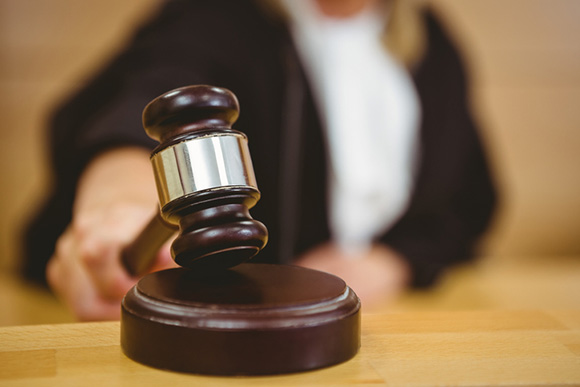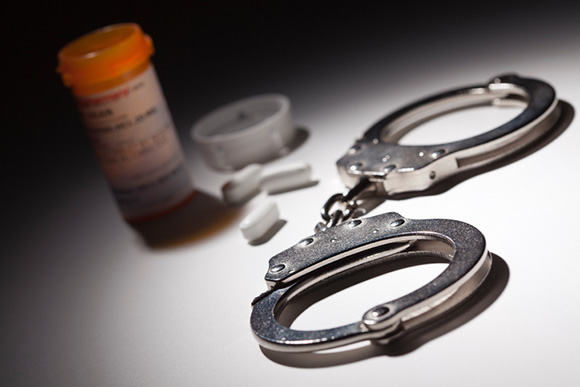
With so many different types of controlled substances and classifications of drug laws, it can be difficult to decipher what’s illegal and what’s not when it comes to drug crimes. Nevada has many different drug laws, and the seriousness of the offense depends on the type of drug and the circumstances involved in the crime.
Although each drug crime and the potential penalties that go along with them vary, these charges are serious and can affect you well into the future. Understanding the specifics associated with Nevada drug crimes can allow those accused to assess their situation and work with a drug defense lawyer to formulate a plan for the best outcome possible. Here’s what you need to know about drug crimes in Nevada.
Related: Know Your Rights When Talking To Police
Please note: Nevada law 453D provides many exceptions for recreational marijuana and concentrated marijuana.
The lowest level of drug crime is unlawfully possessing a controlled substance. To possess a substance means to have it in your dominion and control. Whether the substance is actually in your possession can be questionable when you’re around others or in a vehicle. Exception: Nevada law 453D.110 allows for the legal possession of one ounce or less of marijuana or 1/8th ounce or less of concentrated marijuana.
Selling a controlled substance is illegal. It’s also illegal to transport it for sale. A charge of selling or transporting a controlled substance is always significantly more severe than possession. Law enforcement may try to use the amount in your possession or the presence of scales or baggies as evidence of your intent to sell. Exception: Nevada law 453.310 defines parameters for the legal sale of marijuana.
Making drugs is illegal in the State of Nevada with the exception of marijuana under certain circumstances. Most drugs start with growing or manufacturing. Manufacturing is a serious offense, and the potential penalties include a lengthy prison sentence. Nevada law 453D contains regulations and requirements to legally manufacture marijuana and marijuana concentrate for legal consumption and sale.
Not only is it illegal to possess and sell drugs, but it’s also illegal to possess the items that people commonly have to use and sell drugs. Nevada law 453.554 prevents people from having tools and instruments to help them in the drug trade. These tools may include pipes, spoons, scales, separation devices, and more. However, marijuana paraphernalia
Just like it’s illegal to sell a controlled substance, it’s also illegal to sell a counterfeit of a controlled substance. This law applies to K2 spice and any other substance made to look like another drug. A conviction for manufacturing or selling a counterfeit substance starts with one to six years in prison. Repeat offenders may receive harsher penalties.
With the exception of the legal possession of marijuana and concentrated marijuana, all drug possession charges in Nevada are serious. For a first or second possession of a schedule I, II, III or IV controlled substance, it’s a category E felony. That means one to four years in prison and other penalties. A third or subsequent offense is a category D felony.
For possession of schedule V controlled substances, only a first offense is a category E felony. A second or subsequent charge is a category D felony. Although you may be able to plead these charges down to lesser offenses that avoid prison, all drug possession charges are serious matters. Penalties for selling or manufacturing drugs are much more severe than even the steep penalties for possession.
It’s illegal in the State of Nevada to possess and sell drugs other than marijuana and concentrated marijuana under certain restrictions. It’s also illegal to run a drug selling operation out of a home. In that case, you can face both criminal and civil penalties. Maintaining a drug house is a class B felony punishable by one to six years in prison and a $10,000 fine. Also, law enforcement can seize your home. With proper licensing as defined in Nevada law 453D, you may operate a legal marijuana establishment, however there are still many severe penalties for violating restrictions.
When a drug offense results in a person’s death, Nevada law considers it murder. A drug-related death is a murder any time the death occurs because another person makes a drug available for consumption. An offender can commit the offense of delivering a death causing drug whether they charge for the drug or give it away. In the case of legal marijuana establishments or within the parameters of legal home consumption of marijuana, there are different rules for liability when someone commits illegal acts while under the influence.

While most people think of heroin, cocaine or methamphetamine when they think of controlled substances, prescription medications are controlled substances too. That’s why you need a prescription to get them. An offender that runs afoul of Nevada’s prescription medication laws can find themselves facing serious penalties.
It’s illegal to drive a car while you’re intoxicated in the state of Nevada, no matter the substance. The law prohibits driving while intoxicated whether it’s alcohol or drugs that cause your intoxication. Nevada is also a state that imposes a bright line legal limit for many types of drugs, meaning the laws are clearly defined with little room for interpretation. The penalties for drugged driving are equally serious as the penalties for drunk driving.
Offenders may be able to take advantage of Nevada’s drug court program. Drug courts allow offenders to receive intensive substance abuse treatment and monitoring in exchange for a reduction in the charges or sentence in their case.
This is an attractive option for low-level offenders who are motivated to do what it takes to reduce the charges on their record. The goal of drug courts is to help break the cycle of substance abuse and assist offenders with the resources they need to address substance abuse issues.
Record sealing is another attractive option for a drug offense. In some cases, you can have your drug conviction sealed in just a few years. If you qualify, record sealing allows you to hide your conviction from the public record. Those offenders who are interested in record sealing should talk to their attorney to see if they qualify and what is needed to accomplish this.
Even though the penalties for a drug crime are steep, they only apply if you’re convicted of the crime. If you’re acquitted, or the district attorney drops the charges, there’s no penalty, although civil penalties may still apply. If you accept a plea offer, you face only the potential penalty for the lesser offense.
Law enforcement should take certain steps to test a substance to determine if it’s drugs or if you possess more than the legal amount. If they don’t follow these steps correctly and carefully, you may have a defense. You can also look at whether law enforcement followed the chain of custody requirements to preserve the evidence. Constitutional challenges are also common in drug offenses. Whether you had dominion and control over the drugs to qualify as having them legally in your possession is another common defense in a drug case.
An experienced Las Vegas criminal defense attorney can help you evaluate your drug charges to determine viable defenses. They can also help you navigate the myriad of plea offers and drug court opportunities that may be available. Ultimately, they work with you to understand how the law applies to your case so that you can choose the best plan to minimize the damage and get on with your life.